SSE 2024 Technical Program
SSE 1
14:00 – 15:10
Location: Madrid 6
Session Chair: Sumi Helal, University of Florida
| Opening Address Sumi Helal, University of Florida |
| SSE Keynote 1: Interdisciplinary Integration: Building Large-Scale, Complex, and Trustworthy Digital Service Networks Jianwei Yin, Zhejiang University |
SSE 2
15:40 – 16:50
Location: Madrid 6
Session Chair: Tiberiu Seceleanu, Mälardalen University
| A Novel Predictive Approach to Content Popularity-Aware Edge Caching in VEC Yiyuan Zuo, Yunni Xia, Ruilong Yang, Xu Wang, Xingli Zhong, Qing Xia, Xiaoning Sun and Jiafeng Feng |
| A Code Caching Method for Industrial Software Services Hua Deng, Congfei Li, Zhang Qi, Pingwei Liu, Wei Qian and Jing Dai |
| CLA-RA: Collaborative Active Learning Amidst Relabeling Ambiguity Oishik Chatterjee, Kaizer Rahaman and Pooja Aggarwal |
SSE 3
14:00 – 15:10
Location: Madrid 8
Session Chair: Tao Zhang, the Macau University of Science and Technology
| Exploring GitHub Topics: Unveiling Their Content and Potential Jiaqi Zhang, Yanchun Sun, Yuqi Zhou, Jiawei Wu, Huizhen Jiang, Gang Huang |
| Regulatory Compliance in Software Services Using Emerging Technologies Stephen S Yau, Krutik Pandya, Sumeet Choudhary |
| Analog AI as a Service: A Cloud Platform for In-Memory Computing Kaoutar El Maghraoui, Kim Tran, Kurtis Ruby, Borja Godoy, Jordan Murray, Todd Deshane, Pablo Gonzalez, Diego Moreda, Hadjer Benmeziane, Corey Liam Lammie, Julian Büchel, Manuel Le Gallo-Bourdeau, Malte Rasch, Abu Sebastian and Vijay Narayanan |
SSE-EDU Symposium – Session 1
14:00 – 15:10
Location: Madrid 2
Session Chair: TBD
Nancy Mead, Carnegie Mellon University Session Chair: Zhiying Tu, Harbin Institute of Technology From its beginnings in 1968, software engineering has evolved to a well-defined engineering discipline with strong educational and professional underpinnings. Bodies of knowledge and curricula for software engineering have evolved over a period of decades to their current maturity. Prior to the development of such curriculum standards and guidelines, software engineering was often taught in an ad hoc manner, and the concept of software engineering as a profession also was not very mature. Software services engineering is influenced by these existing software engineering educational and professional efforts and at the same time would benefit from creation and/or refinement of bodies of knowledge and curricula that are specific to software services. We will discuss the work that has been completed as well as refinement of bodies of knowledge and curricula to support future software services engineering education. Nancy R. Mead is a Fellow (ret.) at the Software Engineering Institute (SEI) and an Adjunct Professor of Software Engineering at Carnegie Mellon University. She is known for her work in software and security requirements engineering and the development of software engineering and software assurance curricula. She also served as Director of Software Engineering Education for the SEI from 1991 to 1994. Her research interests are in the areas of software requirements engineering, and software assurance. Prior to joining the SEI, Mead was a senior technical staff member at IBM, where she developed and managed large real-time software projects. She has developed and taught numerous courses on software engineering and software assurance topics, both at universities and in professional education courses. Mead has authored more than 200 publications and invited presentations. Her awards and honors include: IEEE Fellow, Distinguished Member of the ACM, IEEE TCSE Distinguished Educator, Parnas Fellow at Lero the Irish Software Research Center, IEEE Distinguished Visitor Program. She is currently Executive Vice Chair of the IEEE TCSE Executive Board and Treasurer for the IEEE Savannah Section. The Nancy Mead Award for Excellence in Software Engineering Education is named for her. Mead received her BA, MS, and PhD in Mathematics from New York University. |
SSE 4
15:40 – 16:50
Location: Madrid 8
Session Chair: Li Duan, Beijing Jiaotong University
| UCTB: An Urban Computing Tool Box for Building Spatiotemporal Prediction Services Jiangyi Fang, Liyue Chen, Di Chai, Yayao Hong, Xiuhuai Xie, Longbiao Chen and Leye Wang |
| A Service-Oriented Digital Twin Framework for Dynamic and Robust Distributed Systems Rong Gu, Tiberiu Seceleanu, Ning Xiong, Naeem Muhammad |
| Population-Based Incremental Learning for Effective IoT Service Composition with Replication Fengyang Sun, Gang Chen, Hui Ma and Sven Hartmann |
SSE-EDU Symposium – Session 2
15:40 – 16:50
Location: Madrid 2
Session Chair: TBD
Xiaofei Xu, Harbin Institute of Technology Session Chair: Zhiying Tu, Harbin Institute of Technology Service Science and Engineering play an important role in service economy. In order to meet the demands of professionals for modern service industry, service-oriented manufacturing, and service-oriented society, it is necessary to cultivate many innovative service professionals who understand information technologies, management, and services. Education on service science and engineering has been established and developed for more than twenty years. This paper summarizes the connotations and development process of education on service science and engineering, shows the relevant knowledge-bodies and curricula for service science and engineering, introduces the best practice and experiences of service science and engineering education, and presents the considerations and suggestions on the future development of service science and engineering education. Prof. Dr. Xu Xiaofei received his Ph.D. Degree on computer science at Harbin Institute of Technology (HIT) in 1988, has been a professor of HIT since 1993. He was also vice president of HIT. He is the fellow of China Computer Federation (CCF), vice director of China MOE (Ministry of Education) University Steering Committee on Software Engineering, vice director of China MOE University Steering Committee on Digital Education and Innovation, and chairman of the executive committee of the Union of MOOC associations in China. His research interests include service computing, service science and engineering, enterprise computing, software engineering, digital education, etc. He is the author/co-author of 300+ journal/conference papers, and seven academic books. He has received the awards, e.g., CCF Outstanding Education Award, IEEE TCSVC Outstanding Leadership Award, CCF Outstanding Contribution Award, CCF TCSC Life-Time Academic Contribution Award, etc. He has been chairs or co-chairs of conferences, program committees in more than twenty international conferences, including IEEE ICWS, SCC, ICSOC, ICSS, etc. He has supervised 36 Ph.D. and over 100 Masters on computer science and software engineering. |
SSE 5
17:00 – 18:10
Location: Madrid 8
Session Chair: Xin Xia, Huawei Technologies
SSE Panel: Software Service Engineering in the Era of Large Language Models Panel Chair: Xin Xia, Huawei Technologies |
SSE-EDU Symposium – Session 3
17:00 – 18:10
Location: Madrid 2
Session Chair: TBD
John Impagliazzo, Hofstra University Session Chair: Zhiying Tu, Harbin Institute of Technology This presentation explores ways in which competency in computing and engineering can become sustainable in a world where technological digital advances infuse people’s lives. Competency and technical performance have become central to informing students of their responsibilities to society as they enter the workplace or continue in higher education. Competency-based learning in computing and engineering has transformed into the current digital age. Efforts such as the 2019 “Chinese Computer Education for Sustainable Competence” (Blue Book) report, the ACM/IEEE “Computing Curricula 2020: Paradigms for Global Computing Education” report, and the 2023 “Infinite Possibilities: Report on the Digital Development of Global Higher Education” have provided frameworks for sustained competency in computing and engineering. All three publications directly or indirectly support a sustained competency transformation for the current digital age. However, computing and engineering education have yet to embrace fully competency-based learning in their curricula. This presentation will provide helpful suggestions and show how service science could enhance sustainable digital competency beyond the current educational norms. Professor Emeritus John Impagliazzo chaired the committee that produced the 2016 ACM/IEEE Computer Engineering Curriculum Report (CE2016) and was its predecessor’s principal co-author and editor, CE2004. Additionally, he was a committee member that produced the ACM/IEEE Computing Curricula 2005 Report (CC2005), which defined computing disciplines and has become one of the most used documents on the subject in the world. He co-authored the information technology (IT2017) report and was a principal co-author of the global computing curricular 2020 (CC2020) report. Impagliazzo chaired the IFIP Working Group 9.7 (History of Computing), served for many years on the IEEE History Committee, chaired the ACM Accreditation Committee for twelve years, and served in various capacities on the ACM Education Board for three decades. He is an ABET program evaluator for both computing and engineering programs. As a program evaluator or team chair for governments and agencies or as an expert consultant, he has evaluated more than one hundred computing and engineering programs worldwide. Impagliazzo was the founding editor-in-chief of the ACM Inroads magazine, created the IEEE Transactions on Technology and Society, produced eighteen books, published hundreds of articles, and helped develop a history of computing. Impagliazzo is a Fellow and Life Member of IEEE and a Distinguished Educator of ACM. |
Joint Panel: SSE & SSEDU
14:00 – 15:10
Location: Espana II
Session Chair: Carl K. Chang, Iowa State University
SSE/SSE Edu Joint Academic Panel: Advances and Roadmap of Software Services Engineering Education (Joint Panel with SSE) Panel Chair: Carl K. Chang, Iowa State University With the advent of the services computing era, challenges in educating capable future software services engineers and researchers have become more pressing than ever. Software services engineers are professionals whose training cuts across computer science, software engineering, services computing, as well as relevant educational elements in management science and engineering, social science, serviceology, and service science and engineering. We foresee an urgent need in this fast-emerging multidisciplinary field “Software Services Engineering” (SSE) for a comprehensive collection of education and training artifacts including well-defined body of knowledge (BOK), model curricula, open-source platforms, certification requirements, accreditation criteria, articulation directives, exemplary professional course modules, among other related components. We also envision that recent advancements in information technology especially AI-infused tools such as Generative Artificial Intelligence (GAI) will provide a cutting-edge boost to an SSE education (SSEedu) open-source platform. We aim to enact this platform in a collaborative setting, with world-renowned professional associations and national higher-education authorities offering the guidance, expertise and resources needed for collective success. We plan to make this panel an annual event should the community endorse the concept. This inaugural SSEedu academic panel will feature seasoned researchers and educators as listed above, who are representatives and leaders with significant experiences in the past and current association-driven education projects related to the body of knowledge (e.g. SWEBOK), model curriculum (e.g. CC2001), and promotional and dissemination forces tied to international conferences and awards. We look forward to welcoming attendees from diverse academic and professional background, university administrators, government and business compliance officers, textbook authors, among other concerned individuals, in this important and exciting panel to take place in Shenzhen, on Wednesday, July 10, 2024. Let us work together to iron out a roadmap for the future of SSE Education. |
SSE 6
15:40 – 16:50
Location: Espana II
Session Chair: Yanchun Sun, Peking University
| SSE Keynote 2: Enhancing the Proactive and Intelligent Evolution Capacity of Complex Distributed Microservice Systems Zhongjie Wang, Harbin Institute of Technology |
SSE-EDU Symposium – Session 4
15:40 – 16:50
Location: Madrid 6
Session Chair: TBA
Schahram Dustdar, Technische Universität Wien Session Chair: Yves Ducq, University of Bordeaux This talk discusses the fundamental requirements and governance issues determining today’s AI based intelligent systems development and our approach to expediting the overall process of distributed intelligence in systems. Furthermore, we will discuss the implications for Services and Software Engineering. Schahram Dustdar is a Full Professor of Computer Science at the TU Wien, heading the Research Division of Distributed Systems, Austria and part-time ICREA professor at UPF, Barcelona, Spain. He holds several honorary positions: University of California (USC) Los Angeles; Monash University in Melbourne, Shanghai University, Macquarie University in Sydney. From Dec 2016 until Jan 2017 he was a Visiting Professor at the University of Sevilla, Spain and from January until June 2017 he was a Visiting Professor at UC Berkeley, USA. From 1999 – 2007, he worked as the co-founder and chief scientist of Caramba Labs Software AG in Vienna (acquired by ProjectNetWorld AG), a venture capital co-funded software company focused on software for collaborative processes in teams. He is the co-founder of edorer.com (an EdTech company based in the US) and co-founder and chief scientist of Sinoaus.net, a Nanjing, China-based R&D organization focusing on IoT and Edge Intelligence, and co-founder and chief scientist of CooVally Computing S.L. (CooVally.com), an AI company in Barcelona, Spain. He serves as Editor-in-Chief of Computing (Springer). Dustdar is the recipient of multiple awards: IEEE TCSVC Outstanding Leadership Award (2018), IEEE TCI Award for outstanding services (2021), IEEE TCSC Award for Excellence in Scalable Computing (2019), ACM Distinguished Scientist (2009), ACM Distinguished Speaker (2021), IBM Faculty Award (2012). He is an elected member of the Academia Europaea: The Academy of Europe, as well as an IEEE Fellow (2016) and an Asia-Pacific Artificial Intelligence Association (AAIA) Fellow (2021) and he was AAIA president (from 2020-2021). He is president of AIIA – International AI Industry Alliance (AIIA). |
SSE-EDU Symposium – Session 5
9:00 – 10:10
Location: Madrid 8
Session Chair: TBA
Session Chair: Haijun Zhang, Harbin Institute of Technology In the era of artificial intelligence, Alibaba Cloud has been at the forefront of revolutionizing the educational landscape through its innovative public welfare project titled ‘Cloud beyond Creation’. This initiative underscores Alibaba Cloud’s commitment to leveraging cutting-edge technologies in fostering a more inclusive and advanced learning environment across diverse educational institutions. The ‘Cloud beyond Creation’ program focuses on democratizing access to state-of-the-art cloud services and AI tools, enabling educators and students alike to embrace digital transformation. It empowers schools and universities by providing them with tailored AI solutions that not only enhance classroom experiences but also equip future generations with critical skills needed in an AI-driven economy. Through this project, Alibaba Cloud facilitates hands-on experience with its AI-powered platforms and services, allowing learners to engage in practical applications of machine learning, natural language processing, and other AI disciplines. This approach significantly enriches curricula and promotes experiential learning, thereby nurturing problem-solving capabilities and creativity among students. Moreover, the initiative extends support to remote and underprivileged regions, bridging the digital divide and ensuring equal opportunities for quality education. By offering free or subsidized resources, it encourages the integration of AI into everyday teaching methods, which ultimately fosters a culture of innovation within the education sector. In conclusion, Alibaba Cloud’s ‘Cloud beyond Creation’ project stands as a testament to the transformative role of technology in education. By harnessing the power of AI, it paves the way for a smarter, more personalized, and accessible educational journey for all learners, thereby shaping a brighter future where technology and education seamlessly converge to build a truly intelligent society. As the Director of Academic Outreach at Alibaba Group, Li Bei shoulders the responsibility of overseeing the company’s worldwide educational initiatives and academic collaborations. Under his leadership, Alibaba has successfully launched an array of partnership programs, including the Alibaba Innovative Research (AIR) program, Visiting Scholar Program, and Research Internship opportunities. Furthermore, he has facilitated the establishment of multiple joint research laboratories in collaboration with prestigious universities across the globe. Before embarking on his journey with Alibaba, Li Bei held the esteemed position of Senior Education Manager at Amazon Web Services (AWS), where he pioneered the strategic alliance between AWS and academic institutions in China. Back in 2007, he joined Microsoft Research Asia, assuming responsibilities that encompassed fostering academic partnerships, cultivating talent, and orchestrating academic exchanges within the organization. Currently, Mr. Li also serves as the Deputy Director of the Nanyang Technological University Joint Research Institute. Academically, he boasts a Master’s degree from the esteemed University of Melbourne and a Bachelor’s degree in Engineering from the renowned Beihang University. His rich professional background and educational credentials reflect his commitment to driving innovation and fostering international academic cooperation. |
SSE 7
9:00 – 10:10
Location: Madrid 6
Session Chair: Jian Wang, Wuhan University
| SASpre: A Mobility-aware and Destination Prediction-based Resource Preallocation Approach for Edge Computing Servers Shiting Tan, Yunni Xia, Xingli Zhong, Qing Xia, Yumin Dong, Xu Wang, Xiaobo Li and Jiafeng Feng |
| Enabling Automated Service Orchestration in a Computing Continuum with User-Owned Devices Juan Luis Herrera, Javier Berrocal, Christine Julien, Hsiao-Yuan Chen |
| Efficient Incident Summarization in ITOps: Leveraging Entity-based Grouping Suranjana Samanta, Oishik Chatterjee, Prateeti Mohapatra, Arthur De Magalhaes, Hiten Gupta, Ameet Rahane, Ragu Kattinakere and Marc Palaci-Olgun |
SSE-EDU Symposium – Session 6
10:40 – 11:50
Location: Madrid 8
Session Chair: TBA
Session Chair: Haijun Zhang, Harbin Institute of Technology Software engineering, as a discipline, emerged in the wake of the software crisis since both software developers and the inadequacy of conventional development methods failed to tackle the complexity of large-scale software development projects. This not only resulted in spending of more time and finances than what was originally estimated for developing a particular software but also the end product, in case if got realized, turned out to be of much lower quality. Software engineering, therefore, came to the rescue with its initial boost from the NATO Software Engineering Conferences (of the NATO Science Committee) in 1968 and 1969. As a systematic and intelligent approach to software development, software engineering utilizes the engineering principles, methods, techniques, and tools for designing, developing, and maintaining state-of-the-art software possessing key characteristics, including but not limited to, being highly safe, secure, reliable, usable, and accessible. Being a skilled software engineer mandates possessing a diverse range of technical and practical skills, which needs to be imparted in an ideal world via a software engineering-based educational program. In particular, the aim of this paper is to discuss the prevalent trends of software engineering education in the Australia’s higher education landscape. Michael Sheng is a Distinguished Professor and Head of School of Computing at Macquarie University, Sydney, Australia. Before moving to Macquarie University, he spent 10 years at School of Computer Science, the University of Adelaide. Michael Sheng’s research interests include the Internet of Things (IoT), service computing, big data analytics, machine learning, and Web technologies. He is ranked by Microsoft Academic as one of the Most Impactful Authors in Services Computing (ranked Top 5 All Time) and in Web of Things (ranked Top 20 All Time). Michael Sheng is the recipient of AMiner Most Influential Scholar in IoT (2018), ARC (Australian Research Council) Future Fellowship (2014), Chris Wallace Award for Outstanding Research Contribution (2012), and Microsoft Research Fellowship (2003). He is the Vice Chair of the Executive Committee of the IEEE Technical Community on Services Computing (IEEE TCSVC), the Associate Director of Macquarie University Smart Green Cities Research Center, and a member of the ACS (Australian Computer Society) Technical Advisory Board on IoT. |
SSE 8
10:40 – 11:50
Location: Madrid 6
Session Chair: Yun Ma, Peking University
| Detecting Unknown Threats in Smart Contracts With Domain Adaptation Weiwei Ye, Liu Yang, Li Duan, Chao Li and Wei Ni |
| Log Compression via Redundancy Eliminating at Word and Numerical Levels Jiarui Chen |
| Integrated Safety and Security by Design in the IT/OT Convergence of Industrial Systems: A Graph-Based Approach Amirali Amiri, Gernot Steindl, Ian Gorton, Siegfried Hollerer, Wolfgang Kastner and Thilo Sauter |
SSE-EDU Symposium – Session 7
14:00 – 15:10
Location: Madrid 8
Session Chair: TBA
Industrial panel session: Elite Nurturing through Industry-University Synergy in Software Service Engineering Chair: Zhiying Tu, Harbin Institute of Technology Panelists: Xuanya Li, Baidu In the era of rapid information development, the cultivation of software service engineering talents is particularly crucial. The theme of this panel is “Collaborative Education between Industry and University, Innovating the Future”, aiming to discuss how to strengthen close cooperation between Industry and University, and promote the deep integration of theory and practice. This panel invited numerous technical elites and industry leaders from top IT companies in China to jointly explore new models, paths, ideas, and methods for cultivating software service engineering talents. At the panel, panelists will share their enterprise practical experience in software service engineering talent cultivation, including but not limited to collaborative curriculum construction between industry and university, innovation and entrepreneurship projects, practical training and internships, collaborative research and collaborative research platforms between industry and university. In addition, they will conduct in-depth discussions on the current situation and challenges of talent cultivation in software service engineering, the model and practice of industry-university joint training, and the connection between enterprise needs and higher education. At the same time, the panel will also set up interactive segments, allowing attendees to have face-to-face communication, share successful cases and lessons learned, and jointly promote innovation and development in the cultivation of software service engineering talents. |
SSE 9
14:00 – 15:10
Location: Madrid 6
Session Chair: Cuiyin Gao, Harbin Institute of Technology
Multi-Objective Optimization of Application Deployment Strategies in Integrated Cloud-Fog Computing EnvironmentsZheng Han, Hui Ma, Gang Chen and Chen WangZheng Han, Hui Ma, Gang Chen and Chen Wang
| Transformer Models with Explainability for IT Telemetry and Business Events Shiau Hong Lim and Laura Wynter |
| Cloud-based XAI Services for Assessing Open Repository Models Under Adversarial Attacks Zerui Wang and Yan Liu |
| Automated Service Workflow Generation Based on Large Language Model and Graph Neural Network Rui Zhu, Honghao Xiao, Quanzhou Hu, Wenxin Li, Jiajia Wang and Tianrui Bai |
Multi-Objective Optimization of Application Deployment Strategies in Integrated Cloud-Fog Computing Environments |
SSE-EDU Symposium – Session 8
14:00 – 15:10
Location: Madrid 8
Session Chair: Mingyi Liu, Harbin Institute of Technology
Invited Talk Session: Services and Software Engineering Education Exploration of Professional Master’s Talent Cultivation in Service Computing under the New Situation Research on Collaborative Innovation Ability Training of Software Engineering Talents Based on the Industry-Education Integration Service Software Engineering: a T-shaped professional |
SSE 10
15:40 – 16:50
Location: Madrid 6
Session Chair: Rui Zhu, Yunnan University
| Clustering-based Mutual-Learning for Personalized Situation-Aware Services in Smart Homes Hongyi Bian, Wensheng Zhang and Carl Chang |
| Dynamic Adaptive User Allocation in Mobile Edge Computing Jiajia Li, Shunhui Ji, Huiying Jin, Hai Dong, Zhiyuan Ge and Pengcheng Zhang |
| On Coordinating LLMs and Platform Knowledge for Software Modernization and New Developments Hong-Linh Truong, Maja Vukovic and Raju Pavuluri |
SSE-EDU Symposium – Session 9
17:00 – 18:10
Location: Madrid 8
Session Chair: Xiang He, Harbin Institute of Technology
Invited Talk Session: Software and Service Application Open Source Software Education and Evaluation in Universities How LLMs Aid in UML Modeling: An Exploratory Study with Novice Analysts Natural Language-Oriented Programming (NLOP): Towards Democratizing Software Creation |
SSE 11
17:00 – 18:10
Location: Madrid 6
Session Chair: Javier Berrocal, University of Extremadura
| Decoding and Answering Developers’ Questions about Web Services Managed by Marketplaces Siddhi Baravkar, Chi Zhang, Foyzul Hassan, Long Cheng and Zheng Song |
| High-Order-Modal Knowledge Graph Powered API Recommendation for Mashup Development Beichen Hu, Xihao Xie, Junhao Shen, Jia Zhang, Seungwon Lee and Tsengdar J Lee |
| Characterizing the Metaverse Services in Roblox Haiyang Shen and Yun Ma |
| Cross functional renderer services for UX transclusion Damodaran Chingleput Sathyakumar |





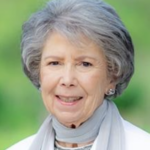 Keynote: Influences of Software Engineering Body of Knowledge and Curricula on Services Engineering
Keynote: Influences of Software Engineering Body of Knowledge and Curricula on Services Engineering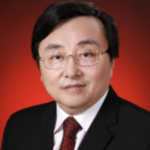 Keynote: Insights and Practice Experiences of Service Science and Engineering Education
Keynote: Insights and Practice Experiences of Service Science and Engineering Education Keynote Speech: Sustainable Competency: Computing Education and Beyond
Keynote Speech: Sustainable Competency: Computing Education and Beyond Keynote: CooVally – an AI Platform for rapid AI development
Keynote: CooVally – an AI Platform for rapid AI development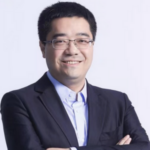 Keynote: Alibaba Cloud AI Empowering Education: The ‘Cloud beyond Creation’ Public Welfare Initiative
Keynote: Alibaba Cloud AI Empowering Education: The ‘Cloud beyond Creation’ Public Welfare Initiative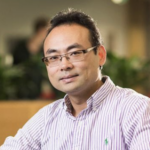 Keynote: Software Engineering Education – An Australian Higher Education Perspective
Keynote: Software Engineering Education – An Australian Higher Education Perspective